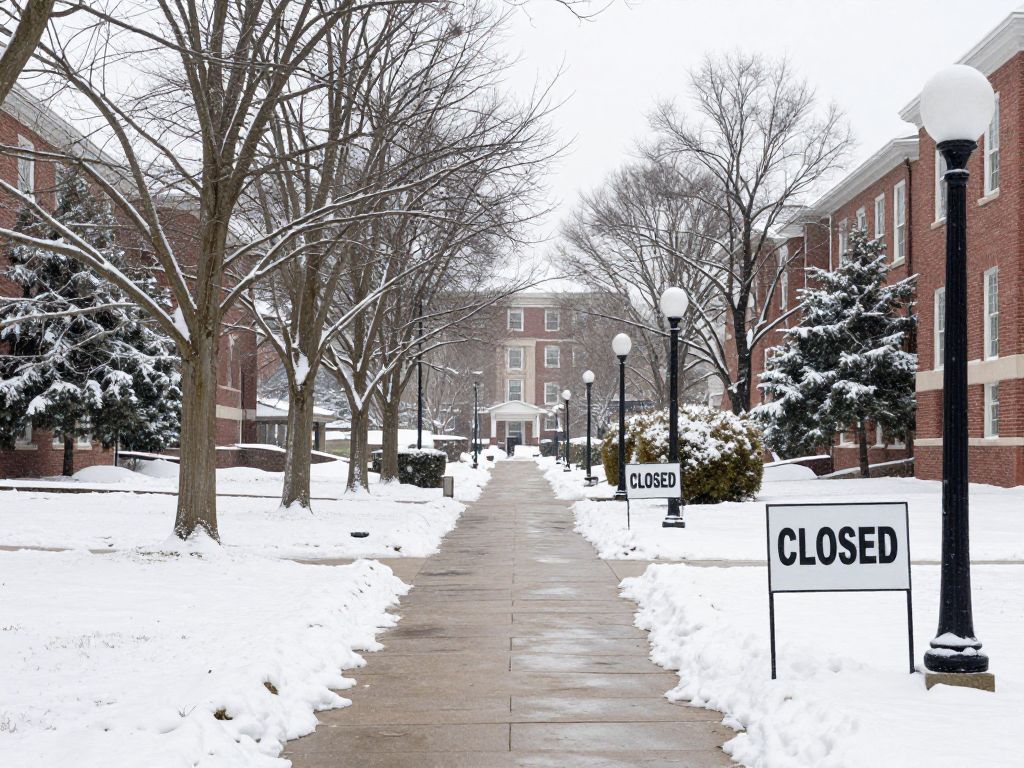News Summary
In response to new federal guidelines allowing ICE agents to enter schools, educators across Massachusetts are mobilizing to reassure students and families about their rights. School districts are enhancing communication around student privacy laws and initiating training on ICE protocols. Many districts are also conducting workshops to educate students and families on their rights in the face of potential immigration enforcement. However, the shift has led to decreased school attendance, raising concerns about the impact on student engagement.
Massachusetts – Educators across Massachusetts are mobilizing to better understand immigration policies and student rights in response to new federal guidelines that allow Immigration and Customs Enforcement (ICE) agents to enter schools. The recent decision by the Trump administration to rescind a policy that previously barred ICE from entering so-called “sensitive locations,” which include educational institutions, has created widespread anxiety among students and their families.
In light of these changes, many school districts are proactively communicating their commitment to student privacy laws while working to address the fears that have emerged within their communities. Letters detailing these commitments have been sent to families to reassure them of their rights and the protection of their personal information.
Educators in the region are taking significant steps to prepare for potential ICE encounters. They are reviewing ICE protocols and developing resources that will be made available to students and families, particularly regarding what to do in the event of a detainment. This includes distributing informational materials, commonly referred to as “red cards,” that outline student rights when dealing with ICE officers.
Many districts in Massachusetts are also conducting training sessions for principals and staff, and providing “Know Your Rights” workshops in partnership with local immigrant advocacy organizations. These initiatives aim to educate both educators and students on their rights and the legal responsibilities of the schools, in an effort to create a supportive environment where all students feel safe to continue their education.
However, the recent policy shift has faced pushback, especially from states like Oklahoma that endorse such changes. Reports indicate a notable decline in school attendance, particularly in immigrant-heavy areas, where families are now hesitant to send their children to school due to fears of ICE intervention. In certain districts, attendance drops have been reported as high as 90% following local incidences of ICE presence.
Students have expressed tangible fears of deportation and have inquired about protocols that schools would have to follow if ICE were to visit. This has led schools to take a decisive stance in reassuring students about their safety and legal rights. The Massachusetts attorney general’s office has provided guidance on schools’ legal obligations to protect immigrant students and their right to receive education, irrespective of their immigration status.
Some districts have undertaken proactive measures even before the policy changes. They have organized forums aimed at clarifying schools’ roles in providing education to all students and reassuring families about data privacy and student safety. Despite these efforts, attendance rates in schools, particularly in cities like Lynn, have declined significantly, a situation that has raised concerns among educators about the long-term impacts on student engagement and learning outcomes.
School directors are fully aware of the community’s fears surrounding immigration enforcement and are striving to alleviate these concerns while promoting a safe and supportive educational environment. The combination of anxiety stemming from possible family separation due to ICE actions has been profoundly affecting students’ ability to focus on their education.
It is important to note that federal law prohibits K-12 schools from disclosing personal information about students, yet this does not completely shield student records from being pursued by immigration authorities. The historical context in Boston, where schools have previously cooperated with ICE, has generated additional apprehension among families regarding possible data sharing.
Given the current climate of fear and misinformation, Massachusetts school districts are attempting to balance their educational mandate with the need to protect the safety and well-being of immigrant students. As educators assess their legal responsibilities and the emotional toll on their students, they are working diligently to foster an environment where all children might thrive academically, regardless of their immigration status.
Deeper Dive: News & Info About This Topic
HERE Resources
Jerome Powell Reflects on His Journey at Princeton
Massachusetts Board Votes for Vocational School Lottery System
Boston Life-Science Real Estate Market Faces Rising Vacancies
Four Massachusetts Cities Among Best Places to Live in U.S.
Community Rallies After 12-Year-Old Left Alone Post ICE Raid
Trump Administration’s Policies Threaten Massachusetts Economy
Massachusetts Faces Economic Challenges Amid Federal Policy Changes
Somerville Celebrates Haitian Flag Day Amid Immigration Concerns
Economic Risks from Federal Policies Threaten Massachusetts
Massachusetts Governor Implementing Hiring Freeze Amid Economic Pressures
Additional Resources
- Axios: Massachusetts Schools and Immigration
- Wikipedia: Immigration Enforcement in the United States
- Mother Jones: Trump and Deportation Fears in Boston Schools
- Google Search: Boston schools immigration
- CBS News: Massachusetts Schools and Immigration Fears
- Encyclopedia Britannica: Education in the United States
- MassLive: Immigration Chill in Massachusetts Schools
- Google Scholar: Massachusetts Education Immigration
- Boston 25 News: School Districts and ICE Coordination
- Google News: Immigration Impact on Schools in Boston
- Boston.com: Somerville Schools and ICE Protocol
Author: STAFF HERE BOSTON WRITER
The BOSTON STAFF WRITER represents the experienced team at HEREBoston.com, your go-to source for actionable local news and information in Boston, Suffolk County, and beyond. Specializing in "news you can use," we cover essential topics like product reviews for personal and business needs, local business directories, politics, real estate trends, neighborhood insights, and state news affecting the area—with deep expertise drawn from years of dedicated reporting and strong community input, including local press releases and business updates. We deliver top reporting on high-value events such as Boston Marathon, Head of the Charles Regatta, and Boston Harborfest. Our coverage extends to key organizations like the Greater Boston Chamber of Commerce and Associated Industries of Massachusetts, plus leading businesses in finance, biotech, and insurance that power the local economy such as Fidelity Investments, Biogen, and Liberty Mutual Insurance. As part of the broader HERE network, we provide comprehensive, credible insights into Massachusetts's dynamic landscape.





